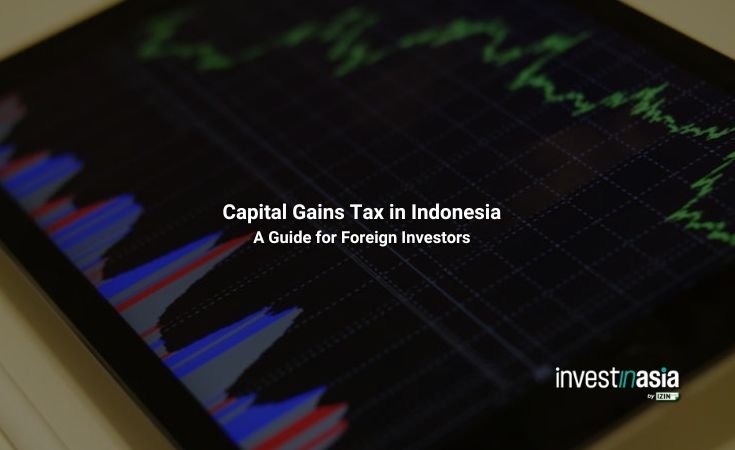Capital gains tax in Indonesia is a final or non-final income tax imposed on profits earned from the sale of shares, real estate, and other taxable assets, with specific rules for foreign investors. For foreign shareholders, tax treatment depends on asset type, transaction structure, and residency status under Indonesian Income Tax Law, including Article 26 for non-residents. Capital gains tax in Indonesia for stock sales covers listed shares on the Indonesian Stock Exchange, over-the-counter transactions, and foreign-owned asset disposals, each subject to different rates and withholding mechanisms.
Understanding capital gains tax in Indonesia with treaty relief options, statutory deadlines, and withholding obligations helps foreign investors reduce compliance risks and avoid penalties.
What Is Capital Gains Tax in Indonesia?
Capital gains tax is the tax levied on profits from the sale of assets such as stocks, real estate, or other properties. In Indonesia, these taxes vary depending on the type of asset, the nature of the transaction, and the taxpayer’s residency status.
Also read: Indonesia Tax Rate for Foreigners: What You Need to Know
Key Tax Rates on Capital Gains in Indonesia


Listed Shares on the Indonesian Stock Exchange
Domestic and foreign investors: A final tax rate of 0.1% applies to the gross value of the transaction.
Founder shareholders: An additional tax of 0.5% applies to the value of their shares during an IPO, based on the stock’s IPO price or closing price in 1996.
Over-the-Counter (OTC) Transactions
OTC transactions occur outside regulated stock exchanges, often between private parties. These transactions are taxed based on the recipient’s status:
- Resident taxpayers: Taxed under Article 17 of the Income Tax Law.
- Foreign taxpayers: Taxed under Article 26 at a fixed rate of 25% of the selling price.
Other Assets
Real estate (land and buildings): Taxed at 2.5% of the transaction value.
Foreign-owned assets sold in Indonesia: Generally taxed at 5% of the gross proceeds unless a tax treaty reduces the rate.
Also read: Dividend Tax in Indonesia: A Guide and Tips for Foreign Investors
Tips for Tax Compliance in Indonesia


For foreign investors, staying compliant with Indonesian tax laws is crucial. Here are some practical tips:
Understand Withholding Tax Obligations
When selling shares or assets in Indonesia, taxes are often withheld at the source. Make sure your broker, buyer, or relevant party fulfills their withholding tax obligations to avoid penalties.
Stay Informed About Over-the-Counter Transactions
OTC transactions lack market mechanisms and are taxed differently. Ensure proper documentation and consult a tax expert to confirm you meet Article 26 requirements for foreign taxpayers.
Leverage Tax Treaties
Indonesia has tax treaties with many countries, which may reduce the tax rates on capital gains for foreign investors. Confirm with local authorities or your tax advisor if a treaty applies to your situation. Read more about it here: Tax Treaty Indonesia: Countries List and Complete Guide
Pay Taxes Promptly
Income taxes on transactions (e.g., Article 26 for OTC transactions) must be paid by the 10th of the following month to avoid late-payment penalties.
Also read: Tax Avoidance in Indonesia: What Foreigners Need to Know
Work with Professionals
Navigating Indonesia’s tax laws can be complex. Collaborating with a local tax advisor or consultant ensures you remain compliant and optimize your tax obligations.
To help you out, InvestinAsia’s Indonesia tax consultant and compliance services can be your best choice.
Our experienced team of professionals is ready to assist you in every tax matter, such as:
- Accounting and tax reporting services in Indonesia
- Indonesia Payroll Service
- Indonesia LKPM Reporting Service
- Indonesia VAT Taxpayers Registration
Contact us now for FREE consultation and special package!
Indonesia’s capital gains tax system is designed to balance fairness and simplicity. For foreign investors, understanding the nuances of listed shares taxation, over-the-counter transactions, and taxable income regulations is essential to avoid compliance issues.
By staying informed and seeking professional guidance, you can successfully manage your tax responsibilities while investing in Indonesia’s thriving market.
References:



